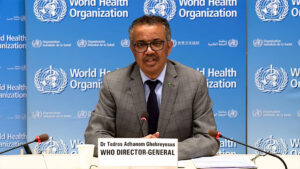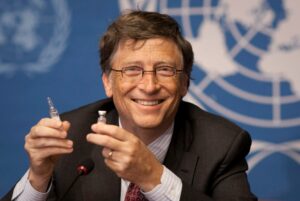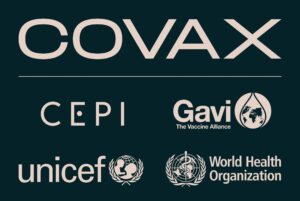To judge from some press releases, the vaccine needs of the world’s poor are being met by COVAX, Gavi and Cepi, but behind swish websites who are they?
The World Health Organisation’s COVAX program “working for global equitable access” trumpets “With a fast-moving pandemic, no one is safe, unless everyone is safe”.
However it is perhaps telling that the WEF last September described it thus:
- COVAX aims to ensure all countries have access to a safe, effective vaccine.
- Richer countries gain access to a portfolio of potential vaccines, avoiding the risk of
backing any one candidate. - Lower income countries get financial support and equal access to a vaccine once
available. (My italics!)
Hmmmm….. Charity, not equality!
 Co-led by Tedros Adhanom Ghebreyesus, Director General of the WHO, the scheme is a partnership with the Coalition for Epidemic Preparedness Innovations (CEPI), Gavi, the Vaccine Alliance and UNICEF.
Co-led by Tedros Adhanom Ghebreyesus, Director General of the WHO, the scheme is a partnership with the Coalition for Epidemic Preparedness Innovations (CEPI), Gavi, the Vaccine Alliance and UNICEF.
CEPI describes itself as another “…global partnership between public, private, philanthropic, and civil society organisations”. It was launched at the World Economic Forum in Davos four years ago and attracted funds for research from governments and trusts. Established in the wake of the Ebola epidemic where there had been competition for access to vaccine, CEPI originally demanded affordable pricing of vaccines, transparency and sharing of data from all those who had benefitted from its funds.
However, under pressure from pharmaceutical corporations (primarily Johnson & Johnson and Pfizer, but with unnamed parties threatening non-cooperation), these policies were ditched in 2018 bringing protest from Médecins Sans Frontières.
Gavi, (officially “Gavi, the Vaccine Alliance”, originally the “Global Alliance for Vaccines and Immunization”) was established in 2000. It is co-chaired by Bill Gates, and claims to have already helped vaccinate 822m children in the world’s poorest countries against other diseases. It asserts: “…Gavi pools country demand, guarantees long-term, predictable funding and brings down prices”.
 Laudable, but a decade ago it was likewise criticised by MSF for failing to push down prices and favouring new drugs rather than simpler health approaches. We thus see self-acknowledged public-private partnerships, supporting the political-economic status quo, with a high degree of effective control over access to pharmaceuticals by poor people and perhaps promoting a dependency modus operandi.
Laudable, but a decade ago it was likewise criticised by MSF for failing to push down prices and favouring new drugs rather than simpler health approaches. We thus see self-acknowledged public-private partnerships, supporting the political-economic status quo, with a high degree of effective control over access to pharmaceuticals by poor people and perhaps promoting a dependency modus operandi.
This may be unfair. It must be acknowledged that the Gates Foundation has funded the survival of many thousands of children. But it appears not to have supported a revolution or challenge to neo-colonial “pharmocracy”.
Gates’ humanitarian vision is impressive and has been communicated to millions; but it’s technological rather than political. Give this a couple of minutes and see if you agree.
I wonder what would happen were Melinda to wake up Bill one night and say: “Hey, Honey, I’ve been thinking about Microsoft’s mission statement- ‘empower every person and every organisation on the planet to achieve more’; let’s!”
— Stephen Pennells




